Welcome from the Incoming CEO Of Adara Development, Debbie Lester
Posted on April 25, 2017.
I will never forget the first time I read about Adara.
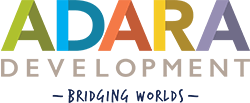 I remember the moment as if it were yesterday. I opened the local paper to a story about a woman, Audette Exel, who had started a unique ‘business for purpose’ to use the power of business to help people living in poverty across the world. It was 1998 and I was living in Bermuda working in maternal and newborn health. At that point I had a decade of experience under my belt working with a population that I love, and it was during that time that the fires for global health were first lit.
I remember the moment as if it were yesterday. I opened the local paper to a story about a woman, Audette Exel, who had started a unique ‘business for purpose’ to use the power of business to help people living in poverty across the world. It was 1998 and I was living in Bermuda working in maternal and newborn health. At that point I had a decade of experience under my belt working with a population that I love, and it was during that time that the fires for global health were first lit.
Read the full post here.
April 2017 Newsletter
Posted on April 19, 2017.
Welcome to the April 2017 issue of the Global Washington newsletter.
IN THIS ISSUE
Letter from our Executive Director
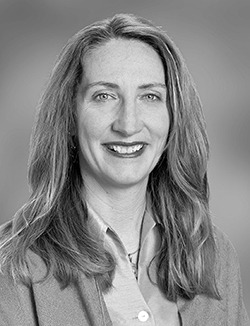
This week, some 12,000 coffee professionals will filter through Seattle for the annual Global Specialty Coffee Expo. Baristas will be competing for the best latte design, participants will learn about the science of coffee, and hundreds of exhibitors will be marketing specialty coffee products. Alongside this Expo, Global Washington will be shining the spotlight on coffee growers in developing countries who bring that delicious brew to our cup each day.
We’ve been pouring over the research, and one thing we’ve learned is that it can be challenging to be a coffee farmer, and climate change is increasing some of the perennial hardships farmers face. Many are having to explore new planting and irrigation techniques, even switching to new types of coffee plants, or new crops altogether.
Several non-profit organizations and academic institutions in Washington state work with coffee farmers to create a more equitable and environmentally sustainable coffee supply chain. In this month’s issue brief, you can learn more about some of the programs that Global Washington members have percolating in coffee-growing regions. Our member profile this month looks at how a Seattle University class project with coffee farmers turned into a student-run social enterprise, Café Ambiental. And our Changemaker for April is a woman from Colombia who is living out her grandfather’s legacy by serving up financial access for coffee farmers through Global Partnerships.
Here in Seattle, we’re known for our great coffee. I hope that after learning more about smallholder coffee farmers around the world, and the Global Washington members working to improve their lives and livelihoods, you will be even more proud of our region and our reputation for supporting excellent, equitable coffee.

Kristen Dailey
Executive Director
Back to Top
Issue Brief
The Future of Coffee Farming in a Changing Climate
By Erika Koss
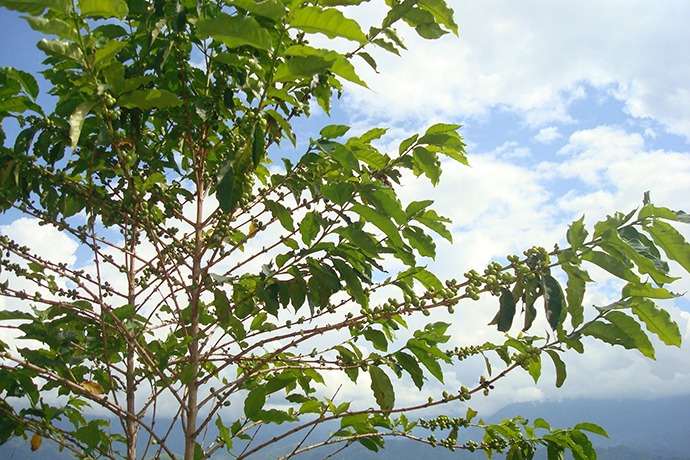
Arabica coffee tree in Uganda. (Credit: Erika Koss).
“The Emerald City” is a fitting nickname for Seattle, a city filled with beauty: parks, lakes, and dazzling views of Mt. Rainer. But it’s also a jewel as a global center of environmental stewardship and social innovation. With a robust Climate Action Plan, intended to achieve carbon neutrality by 2050, it’s also a hub for innovation in technology, science, and the arts. And, Seattle is arguably the “coffee capital” of the United States, a seaport city with a deep history of coffee trade and economic growth, which now boasts more than 1,700 coffee shops to serve its more than 684,000 residents who speak more than 160 languages.
For all these reasons, Seattle is the perfect city to, once again, host the Specialty Coffee Association of America’s annual U.S. Re:Co Symposium and its newly renamed “Global Specialty Coffee Expo.” This week, these two events will unite more than 12,000 coffee professionals from around the world.
The term “specialty coffee” is only rightly applied when coffee beans can be accurately traced to their origin, and when the resulting drink is graded a score of 80 or above through cupping, a rigorous method of judging coffee quality. But specialty coffee purveyors are also driven by a quest for environmental and human sustainability at every part of a long global supply chain.
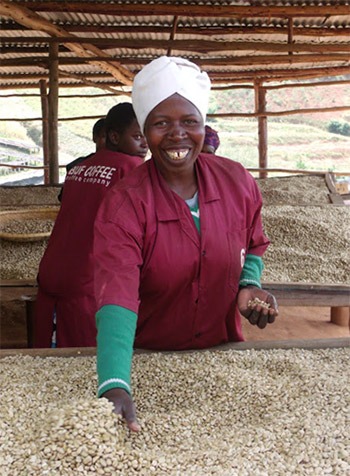
Women are essential actors throughout coffee’s global supply chain, such as this woman, who has worked for a decade at Buf Coffee’s washing stations in Rwanda. Her job includes managing the process of sorting parchment coffee that will be eventually exported to specialty coffee roasters. (Credit: Erika Koss).
The coffee supply chain is nothing if not complex. More than 25 million coffee farmers who hail from the “bean belt”—tropical countries around the equator that produce the coffee bean—work long, tiring hours in some of the world’s most beautiful countries, to grow a product ultimately consumed by more than 80% of all adults in the Global North. Among the 75 coffee-producing countries, the top five producers in 2016 were Brazil, Vietnam, Colombia, Indonesia, and Ethiopia. The vast majority of the world’s coffee is consumed by the European Union countries and in the United States, where demand for coffee has been rising for the last two decades. But it’s mostly in Scandinavia—where many workers’ unions require coffee breaks—that per capita consumption reigns.
At the Global Specialty Coffee Expo, members will join in promoting and enjoying coffee, as well as discussing various challenges that the industry faces, including the greatest one, climate change. Many have even been asking, will we have coffee in 80 years? In 50 years? In 30?
And, like so much in coffee, the answer is, it depends.
If you ask the researchers of the U.K.’s Royal Botanic Gardens and the Environment and Coffee Forest Forum in Ethiopia, we have until 2080 before a majority of the world’s coffee supply disappears due to climate change.
Perhaps one of the most ominous predictions comes from World Coffee Research, which estimates that half of the land currently suitable for Arabica coffee production will no longer be suitable by 2050.
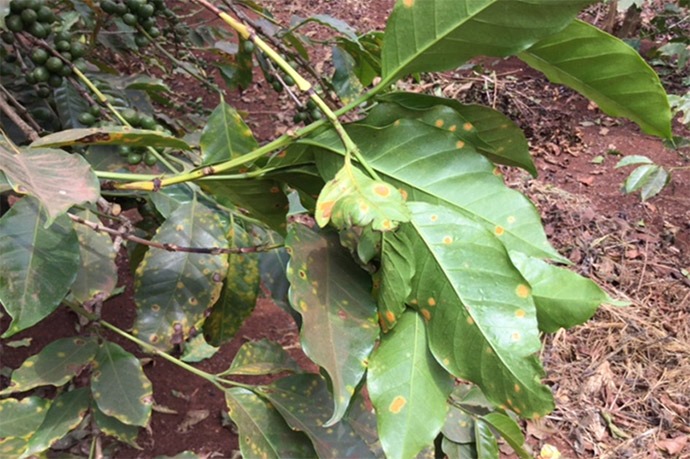
“Coffee rust” (la roya) infects this coffee tree in Kenya, destroying its capacity to produce healthy cherries. (Credit: Erika Koss).
Even the United Nations is concerned. In the Intergovernmental Panel on Climate Change’s 2014 synthesis report, the authors predict that throughout the 21st century, “heat waves will occur more often and last longer, and that extreme precipitation events will become more intense and frequent.” This poses a serious threat for coffee since the tree requires consistent sunlight for photosynthesis, as well as cool temperatures that won’t parch its cherries.
The increasing temperatures also increase the spread of coffee-related diseases and pests that vex coffee farmers and their communities in Latin America, East Africa, and Asia:
- Coffee diseases: “coffee rust” or la roya – a fungus that attacks the leaf and destroys the branch (and therefore the coffee cherry);
- Coffee pests: “coffee berry borer” – an adult female beetle that “bores” a tiny tunnel into the coffee cherry to lay her eggs. When hatched, the larvae feed upon the coffee cherry, thereby ruining its possibility for production;
- Coffee defects: “the Potato Cup” – a defect only traced through taste in the cup, after all the hard labor and time has already gone into the cherry and bean’s production.
Most coffee producers are small-holder farmers, those who own about 25 acres of land or less. Due to coffee’s volatile prices and trade regulations, farmers have a hard time gaining stability unless they join with non-profit certifiers, such as Fair Trade USA, that provide a floor price. Add to this challenge that of labor scarcity. Coffee farmers are aging out, and youth often migrate to cities, where they can earn more for their labor. Since there aren’t enough hands to pick cherries and produce coffee, a coffee lover might well wonder: what hope is left?
Certainly the scientists are hard at work researching more resilient coffee seeds, trees, and beans. And some roasters and café owners implement sustainable business practices by using compostable bags, recyclable coffee lids, or renewable energy. But mitigating climate change will take much more than this.
Thankfully, the entire coffee community is working on these and other challenges —diligently, devotedly, compassionately. That’s why they’re coming to Seattle from all corners of the globe to share with us their passion for the bean – and the people who produce it.
* * *
By strengthening the economic, social and environmental sustainability of coffee production, various Global Washington members are building stronger communities and ensuring the future of a product none of us wants to go without.
Agros International’s data shows that coffee production is a key element of the success and profitability for poor families. That is why Agros’ intervention strategy does not solely focus on its production, but in its commercialization. Farmers receive technical assistance and quality inputs, while Agros makes strategic investments in processing as well on site support to guarantee compliance with both market and environmental standards. The final step is for Agros to create a linkage to consumers by formally connecting farmers to exporters. Coffee rust and the recent drought plagued Agros families along with other coffee farmers in Central America. The response from Agros was to plant roya resistant plants and to enhance irrigation systems in their seven active communities, along with further encouragement of crop diversification. Harvesting coffee is just a piece of an overarching strategy to move families along Agros’ Theory of Change, called the “Path to Prosperity.” A wide-range of other crops for consumption and sale also play a role, along with community development, education, health and emotional growth for each community member.
Global Partnerships is an impact-led investor whose mission is to expand opportunity for people living in poverty. The organization invests in social enterprise partners who empower people to earn a living and improve their lives. Over the last 23 years, Global Partnerships has impacted over 5.1 million lives in 15 countries across Latin America, the Caribbean and sub-Saharan Africa as a result of our impact investments in 101 partners. Partners include agricultural businesses and cooperatives that help smallholder coffee farmers increase their income and strengthen their economic well-being. These partners deliver improved market access, technical assistance and working capital loans designed to help farmers improve crop quality, increase yields, obtain better pricing for their crops, and ultimately strengthen their resilience and economic well-being. An example of these partners is Cenfrocafe, a coffee cooperative that serves 2,450 smallholder coffee farmers in Northern Peru. Cenfrocafe has full-time staff dedicated to providing technical assistance and all of their clients are Fair Trade certified. Their clients earn an estimated $6.53 per day, per family member.
Oxfam America focuses on tackling the conditions that cause poverty by advocating for new laws to help the world’s poor and offering direct support to impoverished people. Throughout the years, Oxfam has supported coffee farmers and raised awareness of the importance of Fair Trade. As global coffee prices have fallen, Oxfam has supported coffee farmers in their fight for fair treatment and better wages. Oxfam’s advocacy efforts include meeting with coffee corporations to push them to adopt fair business practices, providing farmers with new technologies and necessary supplies, and raising awareness of the importance of Fair Trade.
Seattle University was the first Fair Trade University in the Pacific Northwest. As part of the University’s journey to garner Fair Trade certification, a professor collaborated with students and colleagues at the Universidad Centroamericana Managua (SU’s sister school) to develop a new fair trade coffee. In partnership with farmers in the Nicaraguan coffee farmer cooperative CECOSEMAC, the sisters schools worked together to develop Café Ambiental, which is now sold by SU. SU has completed various other projects in conjunction with coffee growers in Nicaragua, including developing a more efficient and sustainable way to treat coffee wastewater.
Theo Chocolate is the first Organic, Fair Trade and Fair for Life chocolate factory in North America. Theo believes that chocolate can and must be produced in a way that creates long-term sustainability for the farmers, the planet, and the consumers. To further that mission, all of Theo’s ingredients, not just its cocoa, are certified organic and fair trade. Theo’s Coffee and Cream milk chocolate bar and coffee caramels both contain organic coffee from local roaster Café Vita.
Thriive’s mission is building shared prosperity in vulnerable, global communities. We achieve our mission by making pay-it-forward loans of up to $10,000 to ambitious small business entrepreneurs to grow their businesses and create desperately needed jobs. Unlike a bank or microfinance loan, ThriiveCapital loans are not repaid in cash, but by business donations of an equivalent value of job training, income-enhancing products, or basic necessities to disadvantaged community members. Thriive supports many different types of businesses including coffee manufacturers in Nicaragua, Guatemala, Kenya, and Vietnam. An example is De La Finca in Nicaragua. De La Finca produces, processes, and distributes its own gourmet honey and coffee products. Their ThriiveCapital loan purchased new equipment to grow and expand their coffee shop. De La Finca’s charitable repayment is highly beneficial to the local community- training unemployed single mothers and unemployed college students in coffee production and processing. Trainees then have the opportunity to sell De La Finca products on their own and keep the income. So far, De La Finca has increased their revenue by 101%, created 2 fulltime jobs, and trained 35 individuals!
Woodland Park Zoo supports a variety of environmentally sustainable projects. Since 1996, the Zoo’s Tree Kangaroo Conservation Program (TKCP) has worked with the communities of Yopno-Uruwa-Som (YUS) to protect the endangered tree kangaroo and its rainforest habitat in Papua New Guinea. In 2009, TKCP partnered with the indigenous YUS landowners to help them address economic challenges. Through an existing relationship between the Zoo and Seattle-based coffee roaster Caffe Vita, TKCP and the people of YUS began to sell Conservation Coffee on the international market. The coffee is shade-grown in small, sustainable family gardens, flown out of the remote mountain villages, and sold by farmers directly to Caffe Vita and other international buyers. To date, farmers have exported more than 65 tons of YUS Conservation Coffee. The success of the program encourages other landowners to pledge their land for conservation. More land pledges means more protection for species such as the tree kangaroo.
Back to Top
Featured Organization: Seattle University
Seattle University Students Brew Up a Fairer Fair Trade Coffee
By Andie Long
Despite both economic and ecological challenges, Seattle University students are supporting Nicaraguan farmers in their commitment to produce the highest quality coffee – and you can get it right here in Seattle.
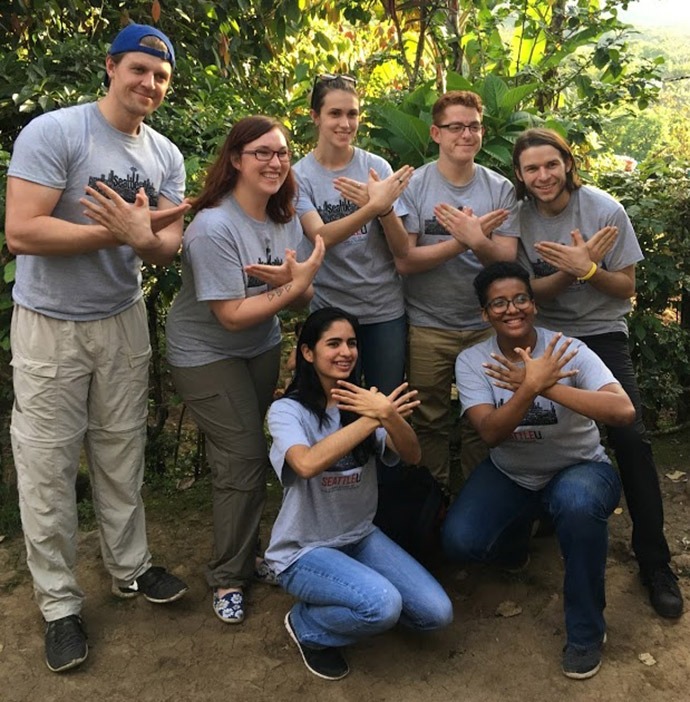
The fair trade coffee team at Seattle University, making the official SU Redhawk sign.
Back row: Justin Totura, Samantha Henry, Lucy Wilhelm, Braden Wild, Benjamin Fuller. Front row: two students from the University of Central America-Managua, Javiera Maritza Alfaro Salinas and Agustina Zamora. (Credit: Seattle University).
For nearly a decade and a half, Seattle University students and faculty have partnered with a coffee cooperative in Matagalpa, Nicaragua. Visiting the farms and talking to some of the 300 smallholder farmers who form the co-op CECOSEMAC, whose acronym means “Aroma of Coffee” Union of Multiple-Service Cooperatives, students have learned about the challenges that coffee farmers face, and worked with them to find ways to solve them.
The relationship with the Nicaraguan coffee co-op began in 2003 when Seattle University chemistry professor, Dr. Susan Jackels, along with Professor Carlos Vallejos and his students from the Universidad Centroamericana Managua, began researching ways to improve the quality of coffee for smallholder farmers after the coffee crisis. Today the program has two faculty advisors besides Jackels, including Dr. Nathan Colaner, who teaches business ethics, and Dr. Quan Le, who teaches international economics.
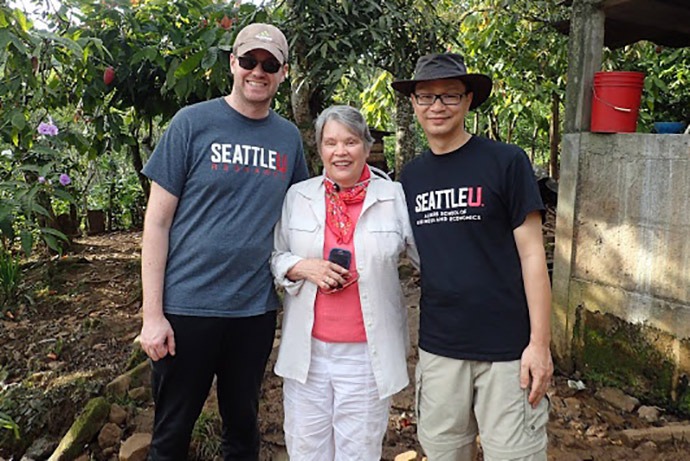
Seattle University faculty advisors: Nathan Colaner (Business Ethics), Sue Jackels (Chemistry), Quan Le (Economics). (Credit: Seattle University).
Since 2003, multiple student projects have sprung up. In 2015, when Professor Le and his students travelled to Nicaragua to visit the coffee co-op, they were joined by a student engineering team, led by Professor Mike Marsolek and professional engineers from Seattle University Department of Civil and Environmental Engineering. The engineering students were working on a wastewater treatment project, while the business students had decided to start a service-learning project, which came to be known as More than Fair Trade.
Le’s students had learned that organic cultivation methods and other fair trade certification requirements tended to decrease the amount of coffee that farmers could produce. Even though farmers could charge a slightly higher price for the resulting product, it still left them without much leftover at the end of the harvest. As a result, the students vowed to find a way to purchase fair trade coffee from the co-op at a price that would not only provide a premium for the certified organic coffee, but would also compensate farmers for the shortfall in their yields, so that they would be able to continue to invest in their farms and their communities.
The business model the group decided on was to pay the farmers a premium 25-35% higher for organic coffee than what they would normally receive, and they would pay up front for every order. The hope was that the pricing mechanism would give farmers incentive to continue improving the quality of their coffee. Sure enough, this is what happened.
The 2017 cupping, the process by which coffee quality is judged, resulted in an almost two point increase compared with where the product was at two years ago. Not only that, all of the profits from the coffee that the students purchased and sold at Seattle University went back to the farmers in the form of school scholarships to support their children.
Coffee farmers in Matagalpa are working hard to improve the quality of their coffee in order to have their product accepted by the specialty coffee market. A greater challenge, however, may be how they can adapt their current agricultural practices in response to climate change.
According to Le, Nicaragua traditionally grows Arabica coffee, which is considered the highest quality and highest prestige. In the past few years, however, the Nicaraguan government has been encouraging farmers to grow Robusta coffee, as it is more tolerant to drought and better suited to the changing climate. Robusta also produces a higher yield and at lower cost. Nevertheless, Le says none of the farmers in the co-op that Seattle University works with are considering switching to Robusta. Not yet, anyway. For now, they are committed to raising the quality of their coffee on the international market, despite the lower yields.
One way the farmers are managing their risk, however, is by working with international organizations, such as the Latin American and Caribbean Network of Fair Trade Small Producers and Workers, to improve their soil management. They are also receiving assistance from a group in the Netherlands on how to improve the quality of their coffee, while at the same time reducing any environmental damage.
For several years, the Seattle University bookstore has been selling the Nicaraguan co-op’s certified organic, fair trade coffee. In March of this year, the students incorporated the project as a student-run social enterprise, called Café Ambiental (Environmental Coffee). It is the only student run business at Seattle University.
Sold for $12.95 per bag, $1.60 from every purchase goes directly to the co-op farmers above what they would normally get, and an additional $3.50 goes towards an education fund for the farmworkers’ children. The profit made from the sales is then used to buy more coffee.
“With the establishment of Café Ambiental, the students are now looking to grow the business beyond Seattle University, so that they might send more money back to the farmers,” said Le. “Hopefully the community will support their endeavors.”
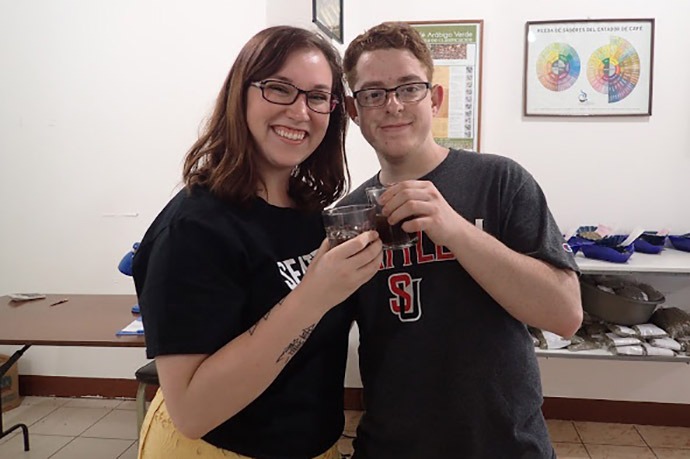
Seattle University student leaders of Café Ambiental: Samantha Henry, VP of Marketing, and Braden Wild, CEO. (Credit: Seattle University).
Back to Top
Changemaker
Nathalia Rodriguez Vega, Global Partnerships
By Andie Long
Global Partnerships’ Nathalia Rodriguez Vega draws on her Colombian heritage in helping coffee-growers lift themselves out of poverty
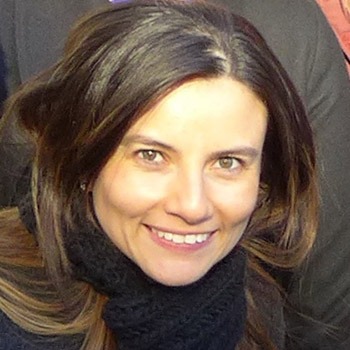
Nathalia Rodriguez Vega, VP Portfolio Monitoring & Economic Analysis, Global Partnerships. (Credit: Global Partnerships).
Growing up in Bogota, Colombia, Nathalia remembers her mom telling stories about her grandfather, Luis Felipe Vega, who managed a coffee farm on the north coast. He started a coffee cooperative so that he and the other farmers in the area could secure a higher price for their beans. Though she never met her grandfather, Nathalia feels a strong connection to his legacy, including working to help improve opportunity for people who grow coffee for a living.
After studying economics and working for a number of years at a major bank in the United States, Nathalia felt a nagging desire to do more with her financial skills to help people, like the farmers her grandfather knew, lift themselves out of poverty. Her search brought her to an emerging field, “impact investing,” a specialty of Seattle-based Global Partnerships.
Living in Seattle for the past five years, Nathalia helps manage Global Partnerships’ debt funds, which invest in social enterprise partners in Latin America, the Caribbean and Sub-Saharan Africa. Less than 10 percent of their partners are coffee-related, yet these partners are currently serving more than 30,000 thousand coffee farmers.
Around 70 percent of all the coffee globally is produced by smallholder farmers, and one of the greatest risks these farmers face is the impact of climate change on their crops. Leaf rust, for example, a fungus that can devastate coffee trees, has been increasing in range and frequency as a result of steadily warming temperatures. In addition, coffee farmers have been grappling with excessive amounts of rain in some areas, and historic low rainfall in other areas. Overall, the extremes are becoming harder to manage.
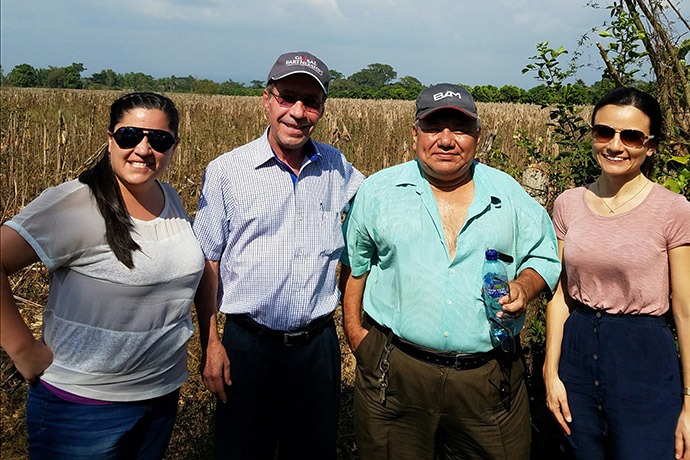
Nathalia Rodriguez Vega (far right) with her Global Partnerships colleagues in Guatemala. (Credit: Global Partnerships).
As a perennial plant, coffee trees are highly sensitive to changes in the environment. Farmers have been experimenting with various ways to adapt their crop to rapidly changing conditions; some are even planting new varieties or switching crops altogether. Requirements of certification groups, such as Fair Trade USA and the Rainforest Alliance, have had the added benefit of making coffee farms (and thus, farmers) more resilient to some of the effects of climate change. These include shifting to new methods of irrigation, pesticide use, and even waste management.
The investment process that Nathalia follows at Global Partnerships includes verifying that the coffee-related service groups they fund are providing farmers with high impact products and services, such as access to international markets, technical assistance, and affordable loans to expand their coffee businesses. Coffee plants start to bear fruit around year three, and reach their full production after year five. Yields start to decline after eight to 10 years, depending on the investment in ongoing maintenance. As a result, farmers must seek funding to “renovate” their crops, especially since aging trees are even more susceptible to weather shocks.
Nathalia sees an incredible richness and vibrancy in the coffee sector here in Seattle and around the world. “It feels very much alive,” she says.
Asked how she likes to drink her coffee, Nathalia replies without hesitation, “Black, no sugar.” Colombian, of course.
Back to Top
Welcome New Members
Please welcome our newest Global Washington members. Take a moment to familiarize yourself with their work and consider opportunities for support and collaboration!
Global Child Nutrition Foundation
Global Child Nutrition Foundation (GCNF) expands opportunities for the world’s children to receive adequate nutrition for learning and achieving their potential. gcnf.org
Back to Top
Member Events
April 19: Washington Nonprofits // Central Washington Conference for the Greater Good
April 25: OutRight Action International // Rights and Resistance: Lessons from the Frontline of the Global LGBTQI Movement
May 1: University of Washington School of Law // Deadline for Sustainable International Development Program
May 1: Shoreline Community College // Saudi Arabia in Transition
May 6: Construction for Change // Banquet
May 10: Women’s Enterprises International // 9th Annual Walk for Water
May 18: One By One // Annual Dinner
June 14: Trade Development Alliance for Greater Seattle // Global Cookout
Back to Top
Career Center
Highlighted Positions
Office Manager, Global Washington
Senior Communications Associate with MACEPA, PATH
Hospitality Coordinator, iLEAP
Development Assistant, Splash
For more jobs and resources, visit https://globalwa.org/job-board/
Back to Top
GlobalWA Events
April 19: Networking Happy Hour with Friends of GlobalWA, Humanosphere and World Affairs Council
Back to Top
The Ripple Effect: Clean Water Programs that Promote Long-Term Behavior Change
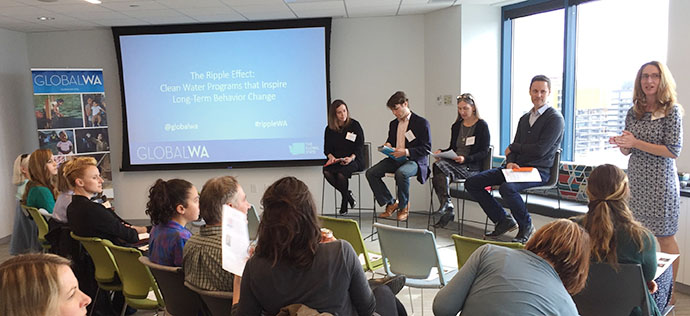
By Meaghan Bogart
Today, 2.5 billion people worldwide do not have access to clean water and a simple toilet. Despite international attention and action around this issue, 35-50% of water projects fail within the first 5 years. In order to share a greater understanding around world water inequalities and the complexity in developing sustainable change, Global Washington hosted a panel event highlighting three organizations that are on the front lines.
Continue Reading
Global Washington: Our Commitment to Global Engagement
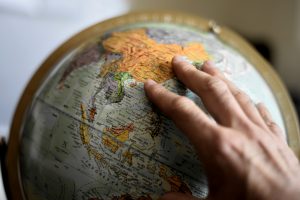
Living in a state as highly dependent on international trade as ours, Washingtonians are well-aware of the importance of maintaining good relations with our global neighbors. Not only is it a smart thing to do economically, it’s also the right thing to do.
Continue Reading
Supporting Women’s Rights in an “Open World”
Posted on March 29, 2017.
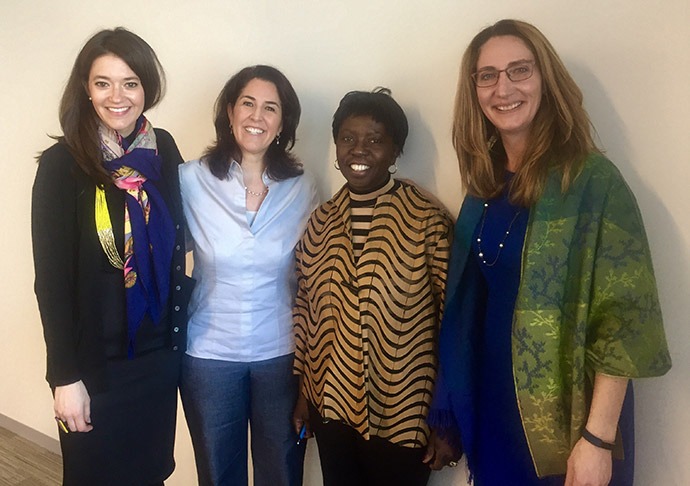
Michele Frix, Janelle Cavanagh, Musimbi Kanyoro and Kristin Dailey
By Michele Frix, Chief of Staff, Seattle Foundation
“We’ve opened our eyes to the problems of the world… we are not going back from an open world, and we are not afraid to stand for women’s leadership.”
Seattle Foundation and Global Washington were honored to recently host Dr. Musimbi Kanyoro, CEO of the Global Fund for Women, for a roundtable discussion about the importance of supporting women-led organizations around the world, especially relevant given the current global socio-political climate.
Continue Reading
The Courage to Persist: Standing Firm in Support of Women’s Opportunities Globally
Posted on March 28, 2017.
Co-Hosted by Global Washington and Sahar
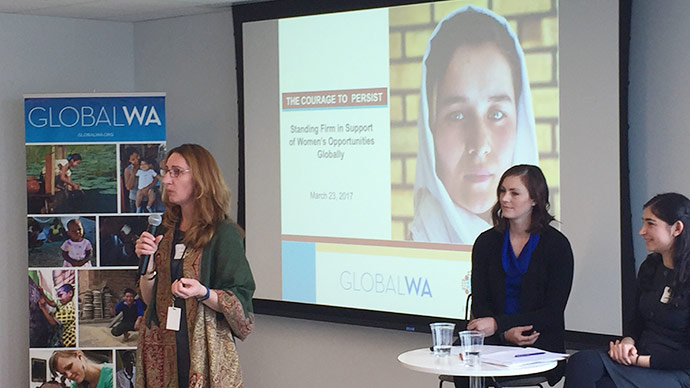
On March 23rd 2017, Global Washington co-hosted an issue briefing with Sahar, addressing some of the challenges facing global women’s empowerment in the current US political climate. Titled “The Courage to Persist: Standing Firm in Support of Women’s Opportunities Globally”, the talk was led by Sahar Afghan Fellow, Malahat Mazaher and Sahar Board Member, Kelsey Noonan and moderated by Ginna Brelsford, Sahar Executive Director.
There were over fifty people in attendance – we had representatives from many different organizations, including Landesa, Camber Collective, Bill and Melinda Gates Foundation, Women’s Enterprises International.
Continue Reading
Global Washington Hosts Atlantic Council for Discussion of “New Normal” in Geopolitical Realities
Posted on March 23, 2017.
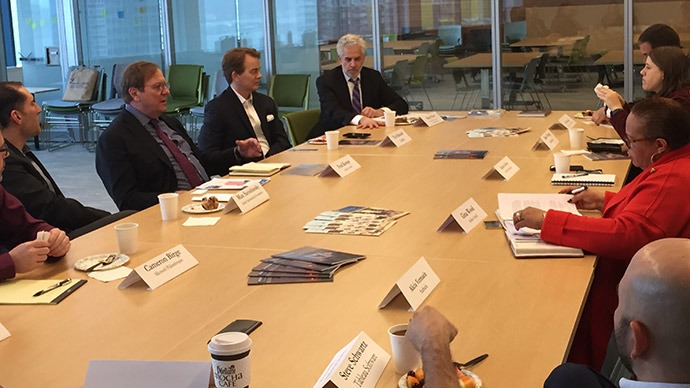
As clouds and drizzle obscured a normally breathtaking view of the Puget Sound, philanthropic and business leaders joined Global Washington for a rare inside look at the current Administration and how geopolitical circumstances are impacting decision-making in the halls of power.
Continue Reading
March 2017 Newsletter
Posted on March 16, 2017.
Welcome to the March 2017 issue of the Global Washington newsletter.
IN THIS ISSUE
Letter from our Executive Director
 At Global Washington, we often talk about sustainable development. At its core, sustainability is about the people who are most affected by a challenge having ownership of the solutions.
At Global Washington, we often talk about sustainable development. At its core, sustainability is about the people who are most affected by a challenge having ownership of the solutions.
In recognition of World Water Day on March 22nd, this month’s newsletter highlights several of our members that are improving access to clean water and sanitation globally. As in most things, the best solutions depend heavily on context, and our members work closely with people in their communities to understand and develop solutions to meet their most pressing needs.
Be sure and join us for a discussion on March 27th to hear more about successes and failures when it comes to improving access to clean water in developing countries. Connecting with one another and sharing what’s working (and what’s not) helps us in our efforts to shape a healthier and more equitable world.
In addition to promoting the work of our members, Global Washington is tracking events related to global development and diplomacy as they unfold in Washington, D.C. Last week, we hosted a private breakfast roundtable with Fred Kempe, the president and CEO of the Atlantic Council, and Washington state philanthropic and business leaders. Those assembled explored how the U.S. can meet future global challenges under the Trump Administration and discussed the essential functions of development and diplomacy for national security. At our upcoming event with Sahar Education International on March 23rd, we will continue to explore the impact of a changing U.S. political climate, specifically on programs for women and girls in Afghanistan.
Finally, I’d like to introduce a new GlobalWA staff member, Andie Long, who joins us as our new Director of Communications and Marketing. Andie spent nine years at Waggener Edstrom, and five years at Mercy Corps. A great storyteller, she has a passion for international issues and social justice, and is a self-proclaimed “data geek” with a deep interest in game design. We feel very fortunate to have Andie on our team!
I hope to see you this month at one of our up-coming events.

Kristen Dailey
Executive Director
Check out our new video and hear members talk about what they like most about Global Washington.
Back to Top
Issue Brief
Behavior Change and Technology: The Keys to Solving Global Water and Sanitation Issues
By Amanda Pain
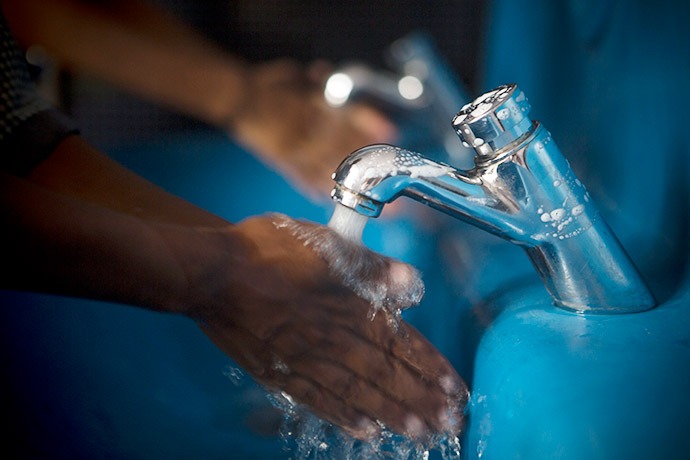
For people in the developed world, it is difficult to comprehend living without running water or a flush toilet. Even more difficult to understand may be that in some places, having these amenities is not the most feasible, cost-effective or beneficial solution. The need for technological innovation to solve access to clean water and improved sanitation, as well as to ignite behavior change has never been greater, or more promising.
In 2010 the United Nations (UN) General Assembly recognized water and sanitation as a human right. Great progress has been made to increase access to clean drinking water, however targets for improved sanitation have fallen short, leaving nearly 700 million people without ways to safely dispose of human waste. In fact, globally 80 percent of wastewater generated by society goes back into water sources untreated, which leaves 1.8 billion people drinking and cooking with water contaminated with feces.
The benefits of WASH (water, sanitation and hygiene) interventions include improved health and nutrition, school attendance (especially for girls), and overall productivity, with less time spent collecting water. Improved sanitation also contributes to economic development by delivering $5 in social and economic benefits for every $1 invested, according to the Bill and Melinda Gates Foundation.
Additionally, research demonstrates that designing WASH technology without changing end-user behavior is less likely to succeed. Technologies such as PotaVida’s Smart Solar Purifier, WASH programs implemented by Splash, and community-designed water system with Water1st, are enabling behavior change and ultimately, long-term sustained clean water system in developing countries.
Between 1990 and 2015, 2.6 billion people gained access to improved drinking water, which included piped water connections, public taps, protected wells and boreholes, as well as filtration systems. However, only five to 25 percent of these water purification methods were used correctly. This is why changing behaviors in WASH is so critical. While access to clean water has made greater strides than access to improved sanitation, where 2.4 billion people still do not have basic sanitation facilities, all areas of WASH need to include behavior change to succeed.
The majority of people lacking improved water and sanitation live in rural areas in sub-Saharan Africa, Southeast Asia and Southern Asia. While people in urban areas have greater access today, urban areas also need attention. This is why new technologies, especially those that enable behavior are so crucial for WASH interventions, and the development sector is working on innovative and cost-effective ways to test and treat drinking water, as well as develop new methods for assessing safe collection, transport, disposal and reuse of fecal waste along the sanitation chain. There are a number of promising technologies for cleaning drinking water. Engineers are also working to make desalination less expensive by reducing the energy required for the process. Technologies are also being created to improve recycling of wastewater and sewage treatment for irrigation and industrial use, as well as to resupply aquifers.
In addition, technology can help encourage, enable and empower sustainable behavior change around WASH. All WASH practices, even hand washing with soap, require some physical product or technological component, and the design of these can strongly influence their acceptance by communities. Placement is often key, as well as physical characteristics, such as the design of soap containers and water taps.
Here in Washington State there are a number of organizations using technology to reach the Sustainable Development Goals focused on WASH. For example, The Bill and Melinda Gates Foundation started the Reinvent the Toilet Challenge in 2011, which has now awarded 16 researchers around the world with grants to utilize innovative approaches for the safe and sustainable management of human waste (see one example here). Additionally, The Gates Foundation provides funding to researchers who are developing ways to process and convert waste into products, energy, and fertilizer. Other organizations such as World Concern and Splash (see a list of other organizations below) are also using innovative technology.
While ensuring all people have access to improved water and sanitation will not be easy, the use of new technologies will help create sustainable solutions in places where piped water and flush toilets are not feasible.
A number of Global Washington members work tirelessly to provide access to clean water and improved sanitation. Below are descriptions of just a few of these organizations, highlighting current projects. Learn more about these members and others on GlobalWA’s interactive map.
Etta Projects: Etta Projects collaborates with communities, creating sustainable solutions to improve health, sanitation and clean water. The organization’s safe water and sanitation projects include building water distribution systems in rural communities, building water purification systems in per-urban communities using filtration, as well as building dry composting latrines and grey water filtration systems. Etta Projects also offers hygiene, sanitation and disease prevention training and education, working with locally appointed villagers to become health, sanitation and rights promoters. ettaprojects.org
Global Good: Global Good combines Intellectual Venture’s unique invention prowess with the expertise of leading humanitarian organizations, forward-looking governments, and commercial partners that share our vision. Together, we invent, develop, and deploy commercially-viable technologies that improve life in developing countries. With the goal of enabling millions of smallholder farmers to grow crops and keep their families going through dry seasons and drought, Global Good is working with various NGOs and other partners to explore the efficiency and other characteristics of inexpensive solar-powered water pumps, with the aim of making such starter pumps more available to the millions of farmers who are attempting to produce food over groundwater they currently cannot reach. globalgood.com
PotaVida: PotaVida enables aid organizations to make better decisions by collecting accurate data from the field in real time and distilling it into actionable insights. To realize this, PotaVida creates technical solutions that work, are simple to use, and result in dramatic benefit to people in need. The company’s first product, the Smart Solar Purifier, disinfects water using just sunlight for household use in disaster relief and refugee contexts. In addition to providing safe drinking water at a dramatically lower cost, every Smart Solar Purifier records its own usage data. This data is downloaded to mobile devices to provide instantaneous feedback in the field, and is also synced in the cloud, analyzed at the program level, and sent to decision makers. potavida.com
Splash: Splash is a nonprofit enterprise focused on clean water, clean hands and clean toilets for children living in urban poverty across Asia and Africa. It implements water, sanitation and hygiene (WASH) programs in child-serving institutions, including schools, hospitals, shelters and orphanages, in order to reach the greatest number of children cost-effectively and to bring about generational change. Splash’s holistic approach to WASH includes high-quality water filtration systems, durable drinking and hand washing stations, toilet renovations, and hygiene clubs to ensure that kids learn healthy habits like handwashing. To date, Splash is managing 1,552 international projects and serving safe drinking water to over 398,000 children every day in eight countries (China, Cambodia, Bangladesh, Ethiopia, India, Nepal, Thailand, and Vietnam). In nine years of operation, Splash’s global project success rate is 99.5%. splash.org
Water1st International: Water1st prides itself on funding sustainable water projects that involve local communities, local women, as well as a consistent funding stream. Since its founding in 2005, Water1st has provided clean water to over 160,000 people. While its projects focus on providing easy access to clean water, the organization also ensures that projects integrate toilets and hygiene education. Water1st’s success centers on robust program evaluation of each of its funded projects to ensure that deliverables are effective and community needs are met. water1st.org
World Concern: World Concern is a Christian humanitarian organization that helps lift people out of poverty through activities including microfinance, agriculture, disaster response and small business development. World Concern works in 22 countries, with the goal of transforming the lives of those it touches, leading them on a path to self-sustainability. As an organization, World Concern aims to be transparent and effective in how it helps. Various staff members from the organization’s U.S. headquarters and in the field contribute to this blog, keeping the public informed of the ways World Concern is offering hope to six million people worldwide. worldconcern.org
Esperanza International Foundation: Working in Haiti and the Dominican Republic, Esperanza International Foundation serves women, the material poor and the socially marginalized. The Foundation’s water projects allow local churches to purchase professional-grade water filtration systems with Esperanza loan capital, which allows churches to then sell clean drinking water at affordable prices to local community members. These churches then use the profits of their water project to repay their loan, as well as invest in strengthening their communities. New access to clean water has played a major role in reducing the number of water borne illnesses and gastrointestinal problems these communities face, providing them with better overall health. esperanza.org
The Living Earth Institute: The Living Earth Institute (LEI) works to empower communities to protect their health and environment through sustainable water use, with the primary goals of ensuring clean water supply and improved sanitation. LEI adapts water projects to the needs of the community with projects ranging from building family composting toilets and community water wells in Nepal, to pursuing earthquake rebuild partnerships. LEI has also created drinking water, rainwater catchment and hand washing stations in developing communities in other parts of the world. living-earth.org
MSR Global Health: MSR Global Health is focused on improving access to basic human needs for people living in low- resource settings around the globe. MSR Global Health believes the same trusted engineering that creates gear for challenging outdoor environments can find solutions to help these communities gain greater access to safe water, food and shelter. msrglobalhealth.com
World Vision: World Vision is the leading NGO provider of clean drinking water, reaching one new person every 30 seconds. Focusing on the rural, ultra-poor, combining access to clean water with sanitation and hygiene interventions and engaging communities in sustainability efforts, World Vision and its partners are committed to expanding their reach to one new person every 10 seconds with clean water and sanitation by 2020. With the use of right-sized equipment, appropriate water sources, manual drilling, mechanized wells with solar pumps and over 500 WASH professionals who live and work in the communities where they lead efforts, nearly 80 percent of World Vision wells continue to function at a high level after 20 years. http://www.worldvision.org/our-impact/clean-water
Back to Top
Featured Organization
PotaVida, Inc
By Amanda Pain
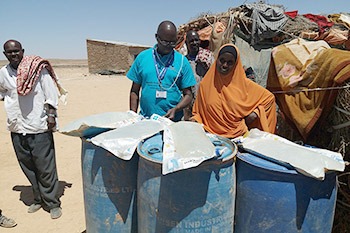 Seattle-based PotaVida, Inc. launched its Smart Solar Purifier last May, and has already seen a great response to the 1,800 purifiers now deployed in Haiti and Somaliland. The Smart Solar Purifier is an innovative household water purifier that tracks its own usage like a Fitbit. Unique among household water solutions, the Smart Solar Purifier uses solar disinfection (SODIS) to eliminate the need for chemicals or filters. Its complementary data collection system provides critical teaching and decision support tools in a context where existing interventions often have usage rates as low as five percent. So far, PotaVida’s data show that over 50 percent of users have successfully treated water with their purifier, representing about a 10x improvement in impact for their NGO partners.
Seattle-based PotaVida, Inc. launched its Smart Solar Purifier last May, and has already seen a great response to the 1,800 purifiers now deployed in Haiti and Somaliland. The Smart Solar Purifier is an innovative household water purifier that tracks its own usage like a Fitbit. Unique among household water solutions, the Smart Solar Purifier uses solar disinfection (SODIS) to eliminate the need for chemicals or filters. Its complementary data collection system provides critical teaching and decision support tools in a context where existing interventions often have usage rates as low as five percent. So far, PotaVida’s data show that over 50 percent of users have successfully treated water with their purifier, representing about a 10x improvement in impact for their NGO partners.
PotaVida was founded by three graduate students at the University of Washington after a team of engineering students won a design competition for a concept to indicate when water was safe to drink from solar disinfection (SODIS). Charlie Matlack, PotaVida’s CEO and principal engineer, said SODIS is not a well-known or highly used mechanism for water purification, in part because it’s hard to tell when the water is safe to drink. He and Jackie Linnes, an expert in microbiology, were joined by Tyler Davis to further develop and commercialize the concept.
Davis knew firsthand, from his work with the United States Agency for International Development (USAID) in Indonesia, the tragic consequences of unsafe drinking water. He also understood the importance of accountability and monitoring in the development sector. With nearly 700 million people globally lacking access to safe water, and many solutions, such as water filters or chlorine tablets, having abysmally low usage rates (between five and 25 percent), the concept had the potential to be a critical tool for access to safe water. Together, the team identified as their best opportunity for impact adding data capture tools to the water purifier concept, and forming a for-profit entity to supply their solution to aid organizations, rather than directly to end-users, leveraging the expertise of established NGOs for distribution and training.
The Smart Solar Purifier has now been through five design iterations, driven by feedback from users in Nicaragua, Zambia, Uganda, and Haiti. Each ten-liter purifier, comprising a hydration bag with built-in UV dosimeter, is built to last for a year. Once filled, the user places the purifier in the sun and presses a start button. A red light indicates the purification process has begun, and a green light indicates the water is safe to drink a few hours later. PotaVida’s biggest client today is World Concern, a Seattle-based non-governmental organization (NGO) that uses the purifier in Haiti and Somaliland. Matlack believes PotaVida’s product and services will be useful not only to NGOs, but also to for-profit aid contractors such as Tetra Tech.
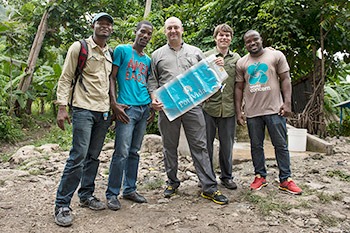 Some of the important changes to the product design included changing the purifier’s spout, which initially had a wide mouth and simple screw-cap. Matlack said that while testing prototypes with World Vision in Uganda, a mother told him this was not suitable for small children because they’d spill the water; now the purifier has a smaller opening and easy-to-use spigot. The bag also originally had a carrying strap and a handle, but Matlack explained that this was impractical.
Some of the important changes to the product design included changing the purifier’s spout, which initially had a wide mouth and simple screw-cap. Matlack said that while testing prototypes with World Vision in Uganda, a mother told him this was not suitable for small children because they’d spill the water; now the purifier has a smaller opening and easy-to-use spigot. The bag also originally had a carrying strap and a handle, but Matlack explained that this was impractical.
“The feedback we received was people did not want to use it for water collection and transporting water,” Matlack said. “They wanted to keep it at home where they could protect and value it.”
Probably the most significant change was the addition of PotaVida’s data collection services. Matlack wanted the purifiers to collect usage data, but originally he thought only PotaVida’s staff would utilize it. However, Randy Strash, who was working with World Vision at the time, stressed the importance of making the data available to the aid organizations not only to promote behavior change around purifying water, but also for NGOs to evaluate water interventions.
Based on this feedback the Smart Solar Purifier not only tells the user when the water is drinkable, it also monitors and tracks use. NGOs purchasing the purifier are given smartphones, as well as a device that syncs the data from the purifiers. Using this equipment the NGO field staff can see immediately if households are using the purifier correctly, if at all. Matlack said this quickly leads to a valuable conversation. The visit records, including GPS locations, also let NGOs see which households their field staff visit daily.
“The purifier’s status indication, together with the data collection, make this a uniquely powerful teaching tool to close behavioral feedback loops and make people accountable for purifying water every day,” Matlack said. He explained that the Smart Solar Purifier is a sustainable household water intervention, because it will create market demand for water purification tools once people know and value purifying their water. He also explained that NGOs and their donors can make better decisions on how and where to allocate resources with the data-driven feedback provided by PotaVida.
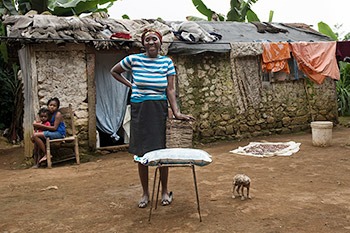 One example of this is the importance of follow-up visits. Matlack said usage data in summary reports from Haiti show only 38 percent of households initially used the device correctly. After the first follow-up visit an additional 31 percent used it correctly, and a second follow-up visit led to more first uses, as well. Knowing this lets NGOs make more informed decisions about investing in continued follow-up visits by field staff, and gaining donor support for these decisions.
One example of this is the importance of follow-up visits. Matlack said usage data in summary reports from Haiti show only 38 percent of households initially used the device correctly. After the first follow-up visit an additional 31 percent used it correctly, and a second follow-up visit led to more first uses, as well. Knowing this lets NGOs make more informed decisions about investing in continued follow-up visits by field staff, and gaining donor support for these decisions.
The Smart Solar Purifier is sold in bulk for $50 per purifier, including all data services and equipment, and is mostly sold through word of mouth. Matlack said he sees PotaVida expanding its role in the water and sanitation sector by working on technology that can track data use for things such as latrine use, hand washing stations, and hand-pump wells.
“PotaVida’s essential value is capturing accurate data and reporting it back to stakeholders, and in doing so, we can maximize utility and impact,” Matlack said. “My goal is to demonstrate the value of PotaVida to the aid community, and to grow the number of purifiers and data services it provides.”
Back to Top
Changemaker
Frehiwot Belete, Hygiene Program Manager, Splash
By Amanda Pain
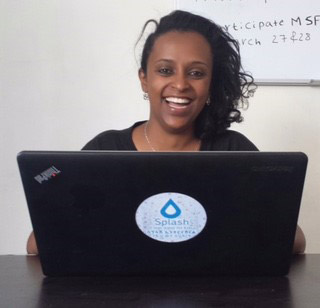 While getting her master’s degree in public health, Frehiwot Belete, Hygiene Program Manager for Splash in Ethiopia, learned about a non-governmental organization (NGO) that provided a community with access to clean water and improved sanitation without including hygiene education. As a result that same NGO came back to find the community using the toilet facilities as storage for their crops. This example, Frehiwot explained, is why behavior change around hygiene practices is crucial to any water, sanitation and hygiene (WASH) intervention. It is also why she has devoted her life’s work to this endeavor.
While getting her master’s degree in public health, Frehiwot Belete, Hygiene Program Manager for Splash in Ethiopia, learned about a non-governmental organization (NGO) that provided a community with access to clean water and improved sanitation without including hygiene education. As a result that same NGO came back to find the community using the toilet facilities as storage for their crops. This example, Frehiwot explained, is why behavior change around hygiene practices is crucial to any water, sanitation and hygiene (WASH) intervention. It is also why she has devoted her life’s work to this endeavor.
“WASH and behavior change are inseparable components,” Frehiwot said. “Behavior change needs to happen first; just providing safe water and sanitation facilities alone will never be enough.”
Growing up in Ethiopia, Frehiwot’s interest in public health began during childhood. She wanted to learn more about the diseases she saw plaguing her community, as well as understand how diseases could be prevented and treated. By the time she started college she believed studying public health was the best way to contribute to society.
“Many of the problems prevalent in my country, things such as diarrhea, malnutrition or stunting are all preventable conditions,” Frehiwot said. “But we are not taking the necessary prevention measures and I wanted to be a part of helping communities understand how to stay healthy.”
Frehiwot’s interest in WASH and behavior change began early in her career. She worked as a public health officer while in school, where she not only conducted public health outreach in rural Ethiopian communities, but also treated common illnesses. She studied for her master’s in public health to better understand the root cause of diseases, and what people needed to do to prevent infection. She plans to study for her doctorate and specialize in epidemiology.
While working in the public health sector she gained experience in hospitals and health clinics in both urban and rural areas. She has worked in prevention and education, treated patients with HIV and tuberculosis, as well as acted as a vaccine coordinator. While working for the Ethiopian Health Institute she focused on Guinea worm eradication by doing active surveillance of endemic areas, as well as mass education on prevention. During her tenure at the Ethiopian Health Institute, the number of Guinea worm cases dropped significantly.
In 2014 Frehiwot went to work for Splash to focus on WASH. During her various experiences in the public health arena she found lack of hygiene and sanitation to be the root problem causing more than 50 percent of communicable diseases in her country.
“I knew that if I went to work for Splash as a hygiene educator I could contribute a lot to my country,” Frehiwot said. “I get to work with children in schools and orphanages all over Addis Ababa, and I know that by reaching so many children I can change lives.”
As hygiene program manager Frehiwot organizes the hygiene education and training portion of Splash’s intervention. The organization builds hand-washing stations at partner sites, and then Frehiwot’s team comes in to ensure commitment to hand washing practices, as well as provide hygiene education.
“Our goals are to increase knowledge and to change student’s attitudes and practices around hand washing,” Frehiwot said. “Educating children is educating the next generation and educating future parents. Children can make a huge impact in changing their family’s hygiene behaviors.”
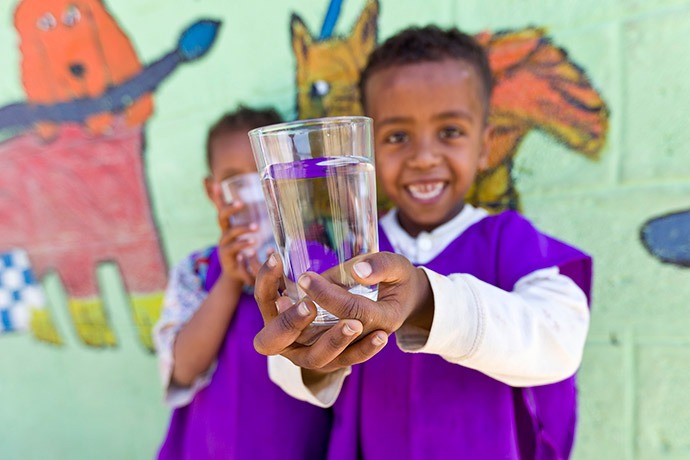
Frehiwot said she plans to spend her career focusing on public health issues in her country and hopes to see clean water and improved sanitation available throughout Ethiopia in her lifetime. She also hopes that attitudes towards hand washing in her country will change, something she is currently playing a key role in. She explained in Ethiopia people do not always see the direct link between getting sick and washing their hands, and because hand washing is not available in all public venues and homes people’s attitude is that hand washing is unimportant.
“I hope while at Splash I will be able to change behavior in all Addis Ababa schools, and that hand washing practices will be carried out by all students,” Frehiwot said. “I have learned in my career that with continuous support and commitment anything can be accomplished.”
At 50 sites in Addis Ababa where Splash has installed hand-washing stations, students are regularly washing their hands with soap that they provide to the schools themselves. Frehiwot said this is something she is very proud of, and having each family invested in buying and supplying soap to the school ensures sustainability.
Frehiwot acknowledges there is still a lot of work to be done to change people’s behaviors around hand washing in Ethiopia. She said changing attitudes and providing hygiene education will be even more challenging in rural areas. However, she loves her work and is committed to serving her country for the long haul.
“Anything can be changed with commitment and devotion,” Frehiwot said. “I truly believe that.”
Back to Top
Member Events
Mar 1-31: Moving Worlds // Moving Worlds Institute Fellowship Application
Mar 16: Landesa // Seed the Change
Mar 16: Seattle University // Connection Café: He Named Me Malala
Mar 16: Shoreline Community College // North America in the 21st Century: A Mexican Perspective
Mar 31: Jackson School of International Studies // Wounded Land and People
Apr 6: World Affairs Council // YPIN International Trivia Night
Back to Top
Career Center
Highlighted Positions
Office Manager, Global Washington
Development Assistant, Splash
Moving Worlds Fellowship, Moving Worlds
Program Assistant, Path
For more jobs and resources, visit https://globalwa.org/job-board/
Back to Top
GlobalWA Events
March 23: The Courage to Persist: Standing Firm in Support of Women’s Opportunities Globally
March 23: Networking Happy Hour with Friends of GlobalWA, Humanosphere and World Affairs Council
March 27: The Ripple Effect: Clean Water Programs that Inspire Long-Term Behavior Change
Back to Top
Women Rise: Empowering Women through Legal Rights and Economic Opportunity
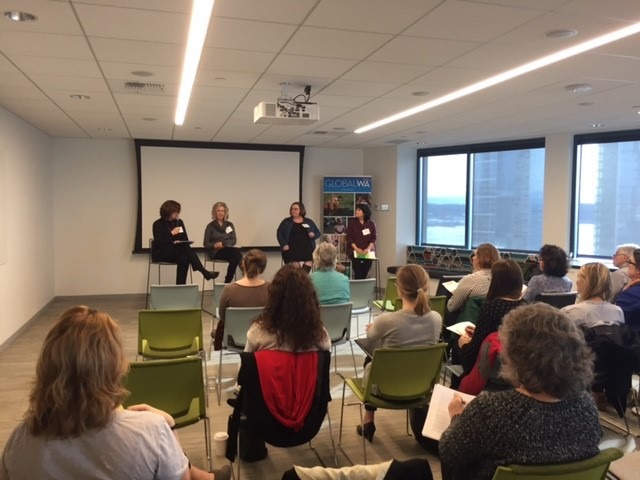
In celebration of International Women’s Day, Global Washington hosted an event on March 1st to highlight member organizations that focus on empowering women worldwide, particularly through increasing access to land rights.
Katrin Wilde, the Executive Director from the Channel Foundation moderated the event and led the discussion among three strong women in our global development community: Kelly McDonald, the Director of Advancement at Agros International; Eileen Moncoeur, the Executive Director at Partners Asia; and Tzili Mor, the Director at Landesa Center for Women’s Land Rights.
Continue Reading
Using Digital Communications to Create Change
Posted on February 23, 2017.
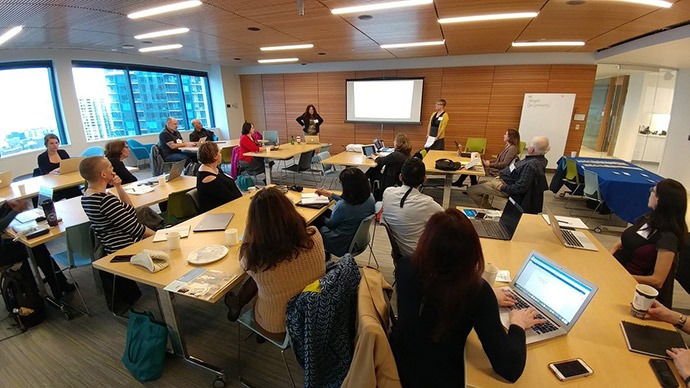
On February 15th, 2017 Global Washington hosted a digital communications workshop in their fantastic new office space, shared with Seattle Foundation. Led by Joel Meyers of FuseIQ, along with Tyler LePard of Wondershop Communications and Amie Newman, writer/blogger for Our Bodies Ourselves, the attendees were treated to an information-packed session on creating digital storytelling for the greatest impact.
The essentials of best practices were covered: What are your objectives? Who is your audience? What is your message? How are you going to measure success? These are key questions for organizations to keep in mind while building out the details of their communications strategy.
In particular, when figuring out your messaging, have you done your homework and figured out who your audience is? Of course we’d love to have everyone know about and support us, but we need to be realistic and recognize that the more detailed we can be about who we’re trying to reach, the more successful we will be in creating content that they will be inspired to read and even act upon through some type of support of our organization. We must know what type of social media they use – remember to take a look at those Google analytics! And by being more specific, we can also remove unnecessary competition for our audience’s attention.
In order to build these relationship based on trust and respect with our audience, Tyler LePard recommends creating a journey map in order to get “inside the shoes” of those we are trying to reach. Once we have gotten their attention, what are you trying to get your audience to do? Using simple calls to action and great visuals are key.
As final takeaways workshop, attendees were encouraged to appeal to hearts, not minds (personal stories are more effective than facts), be creative and think boldly!
 I remember the moment as if it were yesterday. I opened the local paper to a story about a woman, Audette Exel, who had started a unique ‘business for purpose’ to use the power of business to help people living in poverty across the world. It was 1998 and I was living in Bermuda working in maternal and newborn health. At that point I had a decade of experience under my belt working with a population that I love, and it was during that time that the fires for global health were first lit.
I remember the moment as if it were yesterday. I opened the local paper to a story about a woman, Audette Exel, who had started a unique ‘business for purpose’ to use the power of business to help people living in poverty across the world. It was 1998 and I was living in Bermuda working in maternal and newborn health. At that point I had a decade of experience under my belt working with a population that I love, and it was during that time that the fires for global health were first lit.















 Seattle-based
Seattle-based  Some of the important changes to the product design included changing the purifier’s spout, which initially had a wide mouth and simple screw-cap. Matlack said that while testing prototypes with
Some of the important changes to the product design included changing the purifier’s spout, which initially had a wide mouth and simple screw-cap. Matlack said that while testing prototypes with  One example of this is the importance of follow-up visits. Matlack said usage data in
One example of this is the importance of follow-up visits. Matlack said usage data in  While getting her master’s degree in public health, Frehiwot Belete, Hygiene Program Manager for
While getting her master’s degree in public health, Frehiwot Belete, Hygiene Program Manager for 

